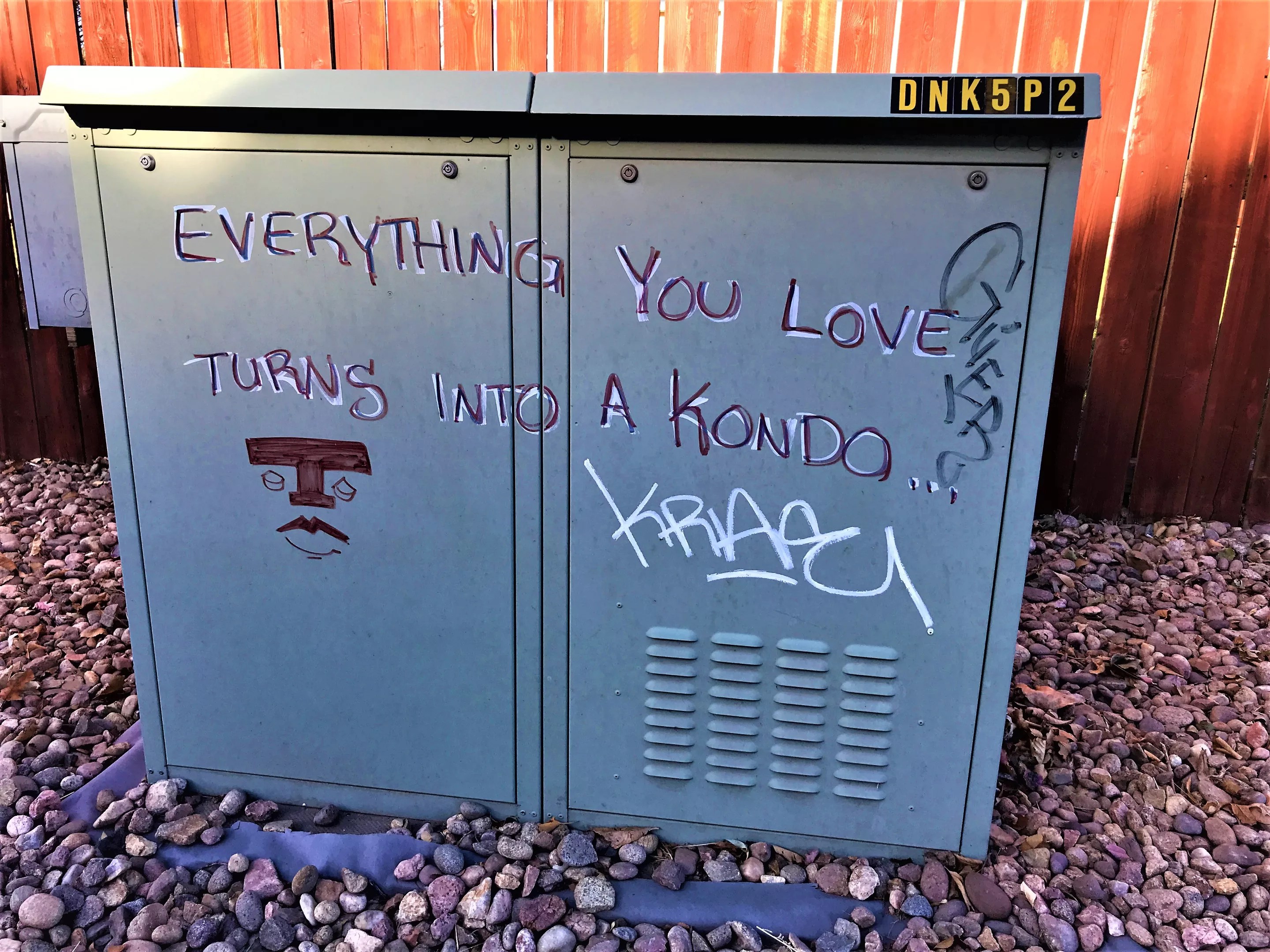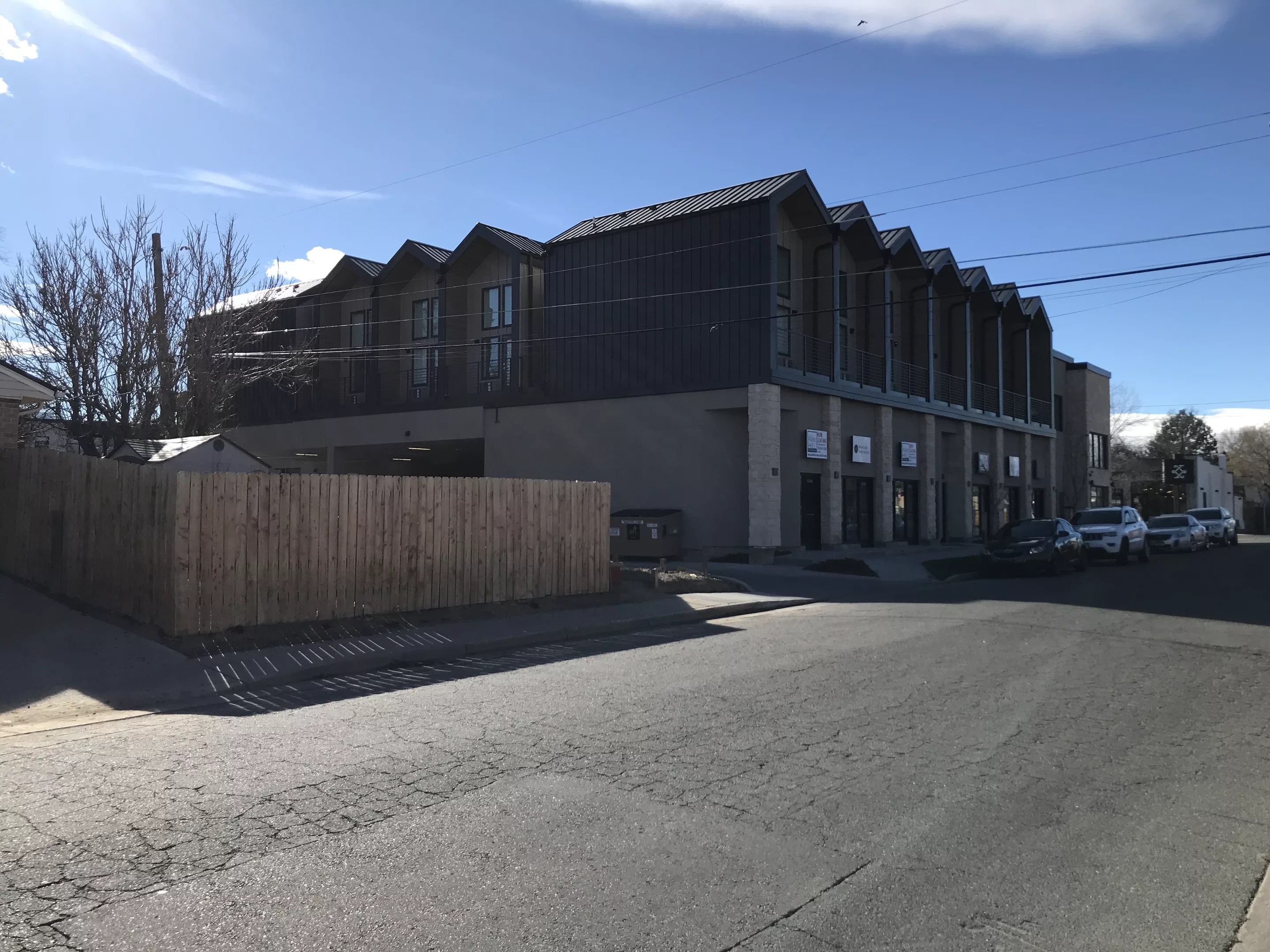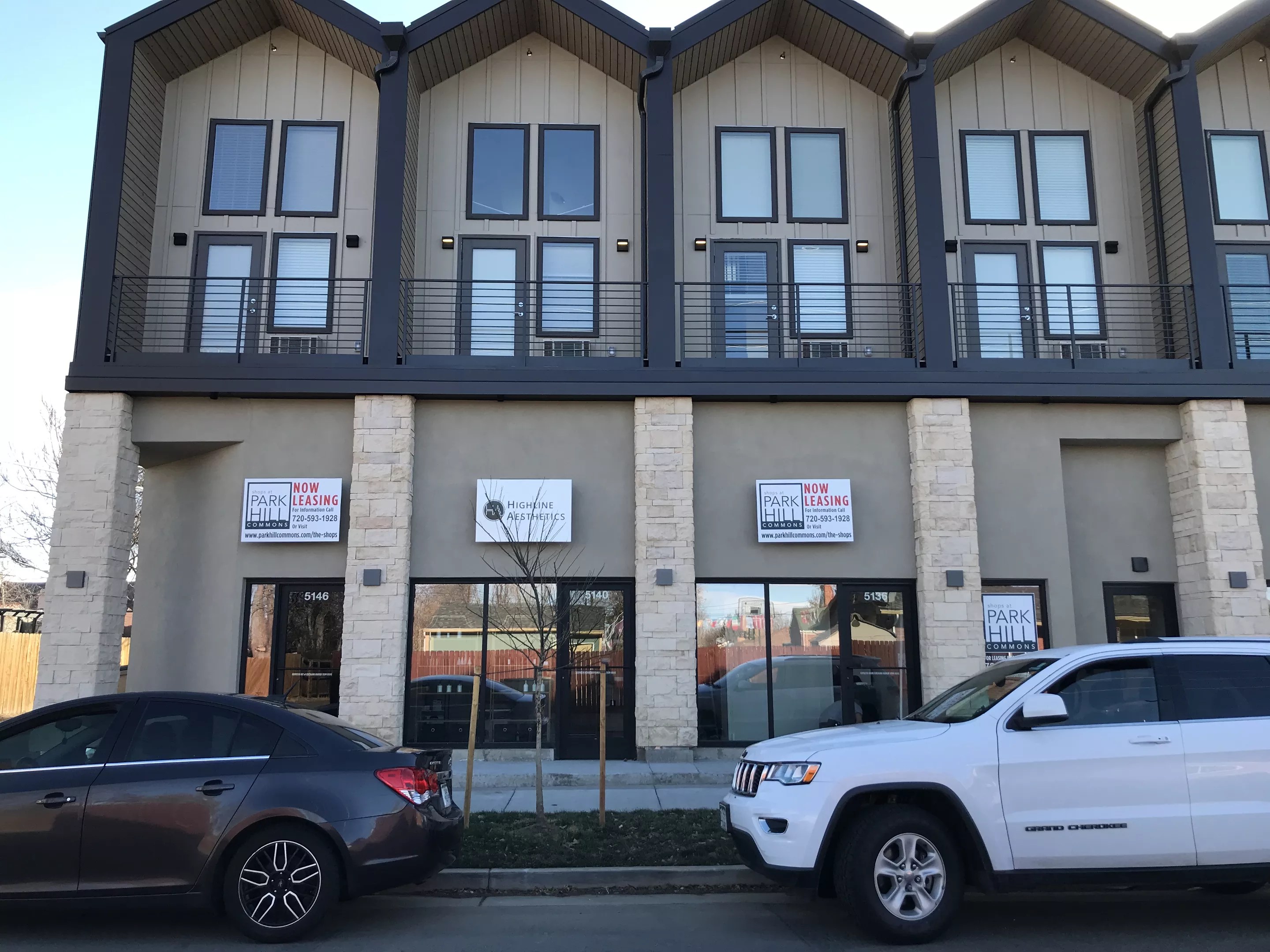
Kyle Harris

Audio By Carbonatix
Local businesses and government agencies pay thousands of dollars for street-art commissions that could help make the Denver area a magnet for young urban professionals, but sometimes it’s the unauthorized, slapdash graffiti that offers the most astute takes on the state of this place.
For the past few months, a tag in Park Hill has offered the sobering reminder: “EVERYTHING YOU LOVE TURNS INTO A KONDO.”
The words are scrawled on an electrical box on East 29th Avenue between Forest and Fairfax streets, near what was once a strip of modest businesses on Fairfax that included many Black-owned shops, restaurants and homes. It now houses a mixed-use development dubbed the Park Hill Commons, with a patch of grass called a “park” between two big buildings.
Since 2016, HM Capital, the developer behind Park Hill Commons, has been buying and tearing down older residences and businesses on the block, while also securing city money for the project. It is the least Park Hill development in a historic residential neighborhood with a long and complex history of racist zoning policies and civil rights housing activism.
Since the ’60s, this part of Park Hill has been a multicultural community where Black families fought hard to build their lives in the face of death threats from racist white neighbors. Now long-term neighbors are quietly being priced out and bought out, as predatory real estate companies pester longtime homeowners about purchasing their properties.
Nowhere is the neighborhood’s shift more apparent than at Park Hill Commons, which aspires to be the next hot thing. It includes trendy new businesses, a co-working space, 21 townhomes called Fairfax Row, and nearly two dozen 375-square-foot micro-apartments dubbed The Studios.

Park Hill Commons
Kyle Harris
“The Shops at Park Hill Commons are a mix of restaurants, cafes and boutiques,” the development proclaims. “With the minimalist feel and graceful touch of modern design, our shops add a sophisticated style to the neighborhood without losing the historic charm of greater Park Hill.”
Talk about spin: By “minimalism,” the boosters seem to mean beige buildings and slot homes, much like the kind largely banned elsewhere in the city. The project sticks out in the quaint neighborhood – and not because it looks good. And there’s certainly nothing sophisticated about trouncing a culture that has been rooted in an area for decades.

Park Hill Commons
Kyle Harris
Sophisticated culture and style have been part of Park Hill since Black residents fought for the neighborhood’s integration in the ’50s. The neighborhood has been home to some of the city’s creative giants, from artists like dancer/choreographer Cleo Parker Robinson to musicians such as Trev Rich and Kayla Marque. Some of these artists are still there; others have moved on. But this new development is bringing nothing to the area that rivals the innovation of those artists or their community.
Not craft brew. Not a delicious slice of Sexy Pizza. Not a yoga class.
Instead, this development is almost a caricature of itself, as well as what rapid gentrification and cultural erasure looks like. And it mirrors much of what’s happened throughout Denver over the past two decades, from the north side to Five Points, Cole, Whittier and the west side.
In the face of all that cultural devastation gussied up by copywriters’ spin and muralists’ color, the scrappy graffiti writers are still able to speak the truth.
In this case, it’s simple yet profound: The things we love really do become condos.